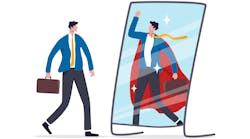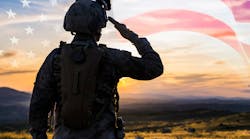Latest from Columnist
When I was a kid, I loved to read the stories in Boys’ Life magazine about Boy Scouts who had saved a life and earned the Lifesaving medal. A True Story of Scouts in Action is the name of the monthly column which tells each story in colorful hand-drawn illustrations. These boys are true life heroes, who put themselves in jeopardy in order to save someone. I recall stories of boys diving into ice cold water to rescue a drowning victim; swimming across rushing rivers to save people stranded by a flood; dashing into burning buildings to rescue children and the elderly, and pulling people from burning cars. I loved to read how they used their knowledge of first aid to stop bleeding; to resuscitate those who were not breathing; or to perform CPR. They were always older boys than me; but I dreamed of being a hero like them, and one day having the opportunity to save a life.
Heroes are people who rise to the occasion and slip quietly away.
(Tom Brokaw)
Lately, however, it seems the meaning of the word hero has been watered down until it seems like everyone is a hero. Recently, I even saw a statement online that said, "Everyone is a hero in his or her own way." Has the word HERO become little more than a participation trophy?
Let’s begin with a definition of hero from thefreedictionary.com: he-ro (hîr’o) n. pl. he-roes 1. A person noted for feats of courage or nobility of purpose, especially one who has risked or sacrificed his or her life [emphasis mine].
I chose this dictionary definition over several others because it included that the hero has risked his or her life. Remarkably, many of the other dictionaries do not include this as part of their definition.
Heroes are made in the hour of defeat.
(Mahatma Gandhi)
When I google "world’s greatest heroes" I mostly find references to government leaders and military generals. Seriously? These are the people that create conflict and wars, and then direct them safely from behind the battle lines. These people are NOT risking their own lives. I don’t see any heroism here.
InvisiLight® Solution for Deploying Fiber
April 2, 2022Go to Market Faster. Speed up Network Deployment
April 2, 2022Episode 10: Fiber Optic Closure Specs Explained…
April 1, 2022Food for Thought from Our 2022 ICT Visionaries
April 1, 2022A hero is no braver than an ordinary man, but he is brave five minutes longer.
(Ralph Waldo Emerson)
I frequently see athletes and sports stars glorified as heroes. These people are NOT heroes — they are playing a game! I don’t care how hard they played, or that they may have gotten injured, or that they put the team first, or that they persevered and came from behind to clutch a jaw-dropping last minute win — they are still not heroes.
Superheroes were born in the minds of people desperate to be rescued.
(Jodi Picoult)
And, then we have fictional Superheroes who do good deeds and fight evil. But they, too, are not heroes. They are people who are endowed with super powers. Having a super power limits or eliminates their risk. Even Spiderman realizes he is not a hero when he says, "With great power, comes great responsibility."
A hero is a man who is afraid to run away.
(English Proverb)
A hero takes an action to help others at considerable risk to himself; however, if that action also helps himself, then he is not a hero because he is acting out of self-interest. For example, a bus driver is carrying passengers along a mountain road with steep drop-offs when suddenly the brakes go out. Somehow, through his superb driving skills, he manages to stay on the road until the bus levels out and stops at the bottom of the hill, and saves everyone’s life on board. The driver is not a hero because he saved his own life.
The real hero is always a hero by mistake; he dreams of being an honest coward like everybody else.
(Umberto Eco)
I’ve seen proclamations that teachers, nurses, farmers, plumbers, electricians, ministers, and parents are all heroes. They are not. I’m not saying that these people don’t perform necessary or noble services — clearly they do.
Being courageous does not make one a hero. Courage is admirable, but unless it involves risk or sacrifice in order to help others, then it isn’t heroism.
I believe it is time to narrow the definition of Hero back down to someone putting their life and property at risk to save someone or to invoke positive change. Martin Luther King, Jr. is a good example of a hero who sacrificed his life for positive change.
If we look to the Boy Scouts of America and use their eligibility requirements for the Lifesaving medal as a guideline, it will help us restore the value of the word: hero. According to the BSA: "not qualifying are individuals who do lifesaving as part of their job, such as an EMT, lifeguard, or doctor." I think we can also include fire fighters, police officers, and soldiers — all of whom are volunteers who are paid to do their job. Of course, there are instances in which these people may do something heroic, going above and beyond their stated duty, such as the soldier who throws his body over a live grenade to save his comrades.
Let’s give the word Hero value again, by refusing to use it lightly.
Like this Article?
Subscribe to ISE magazine and start receiving your FREE monthly copy today!









